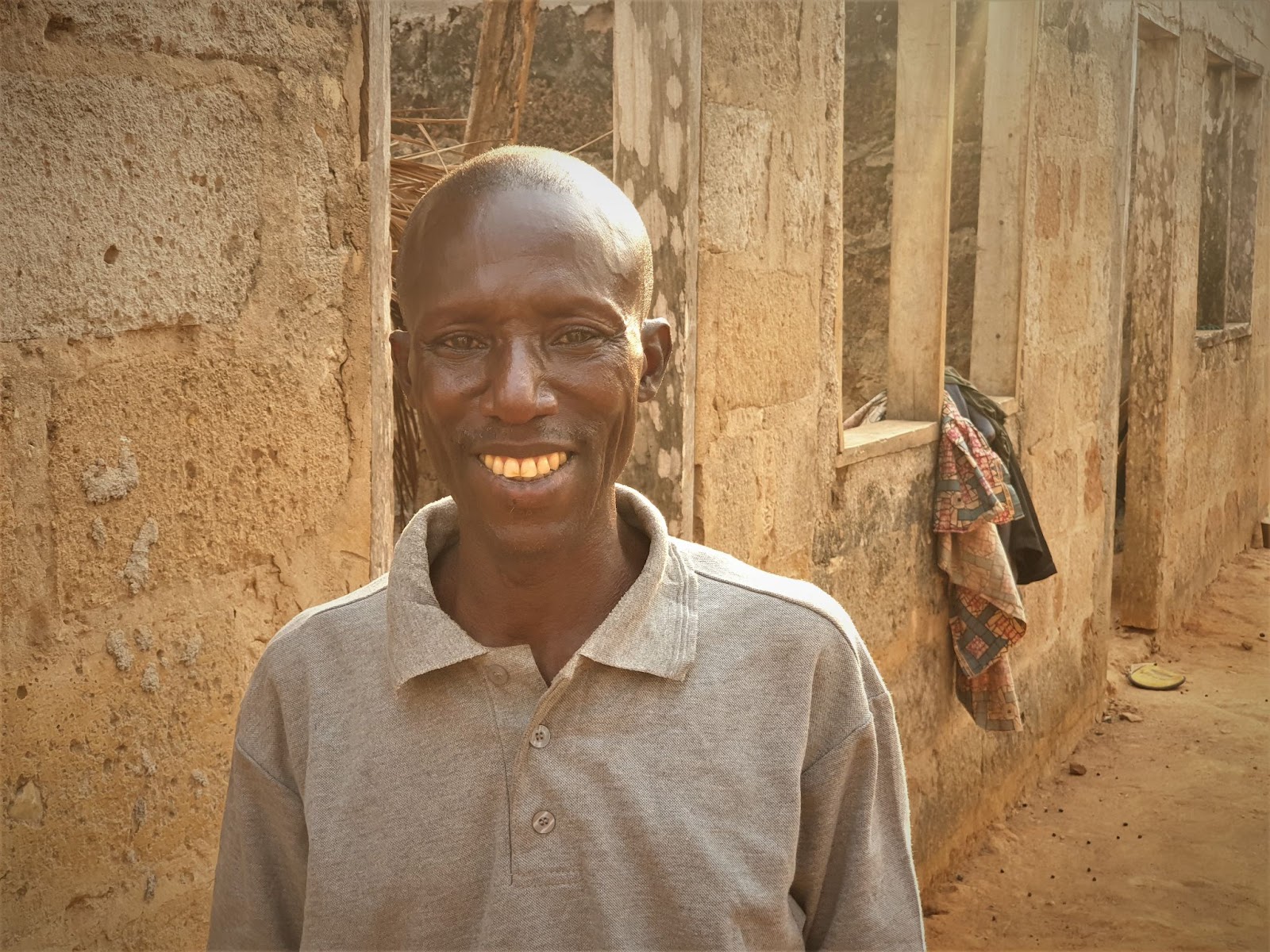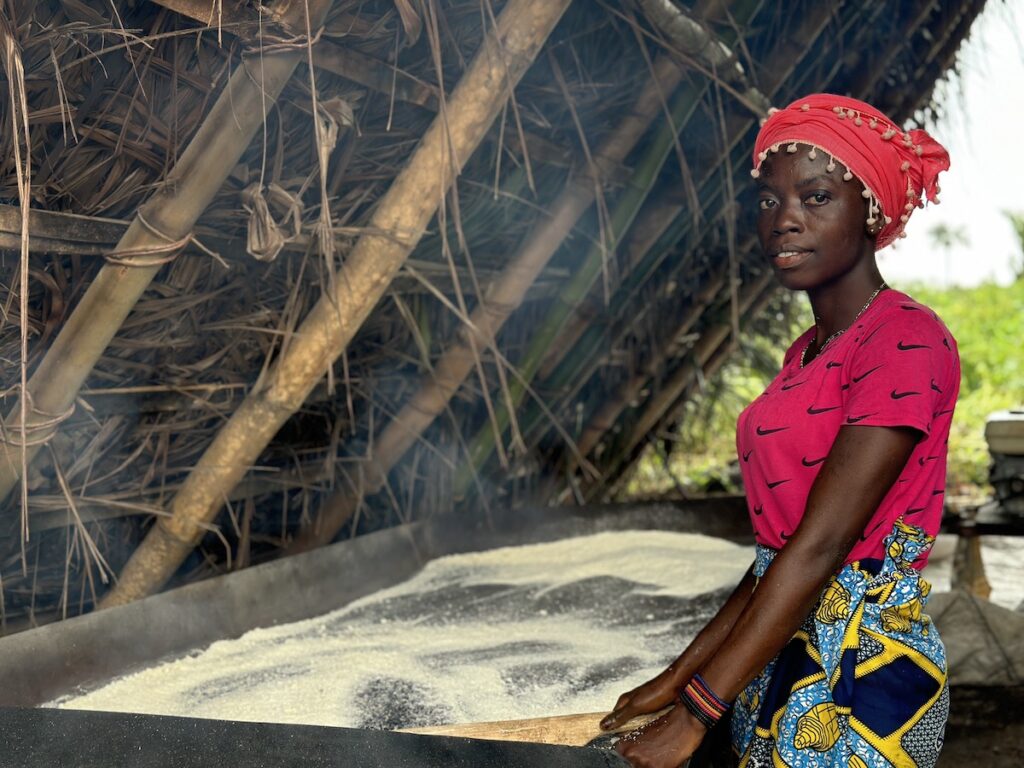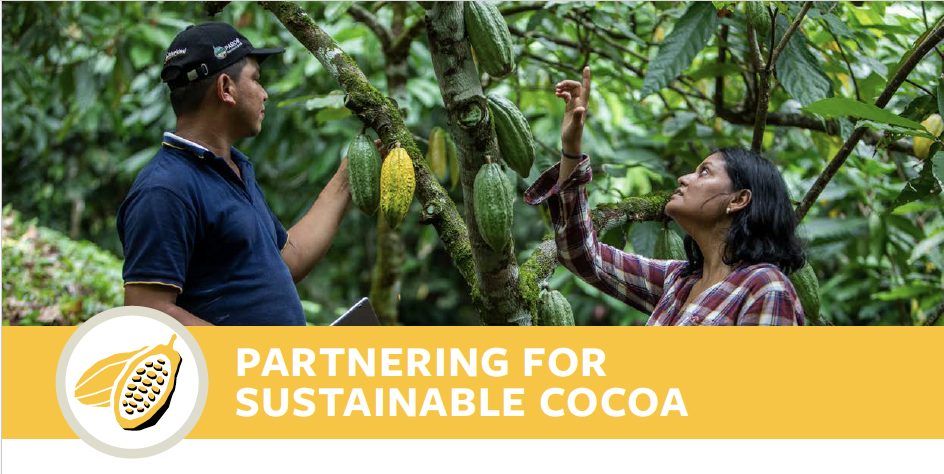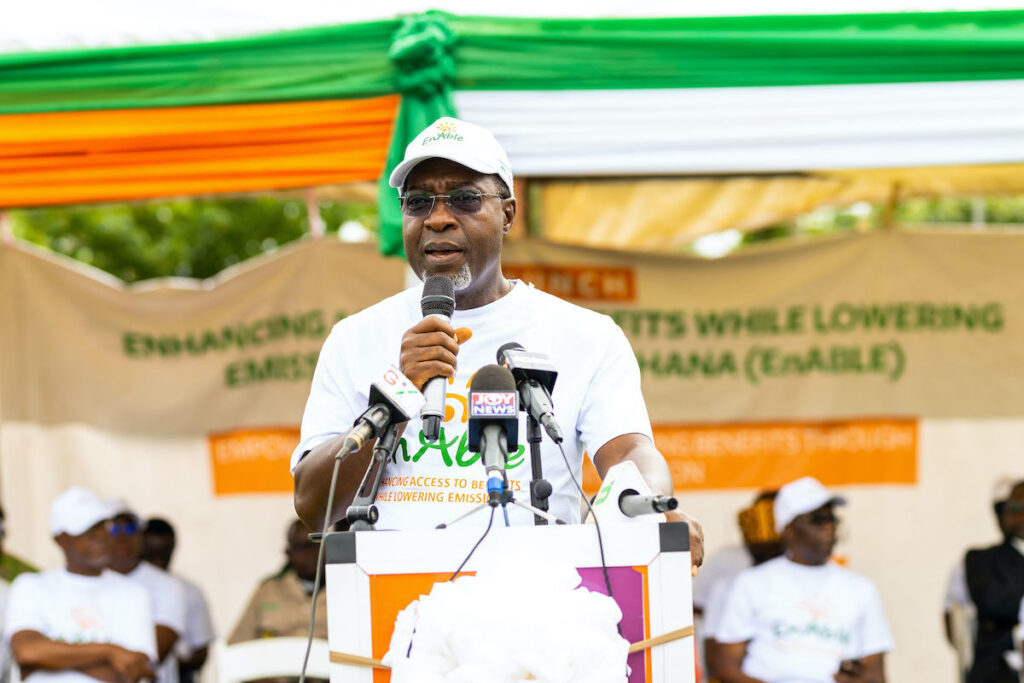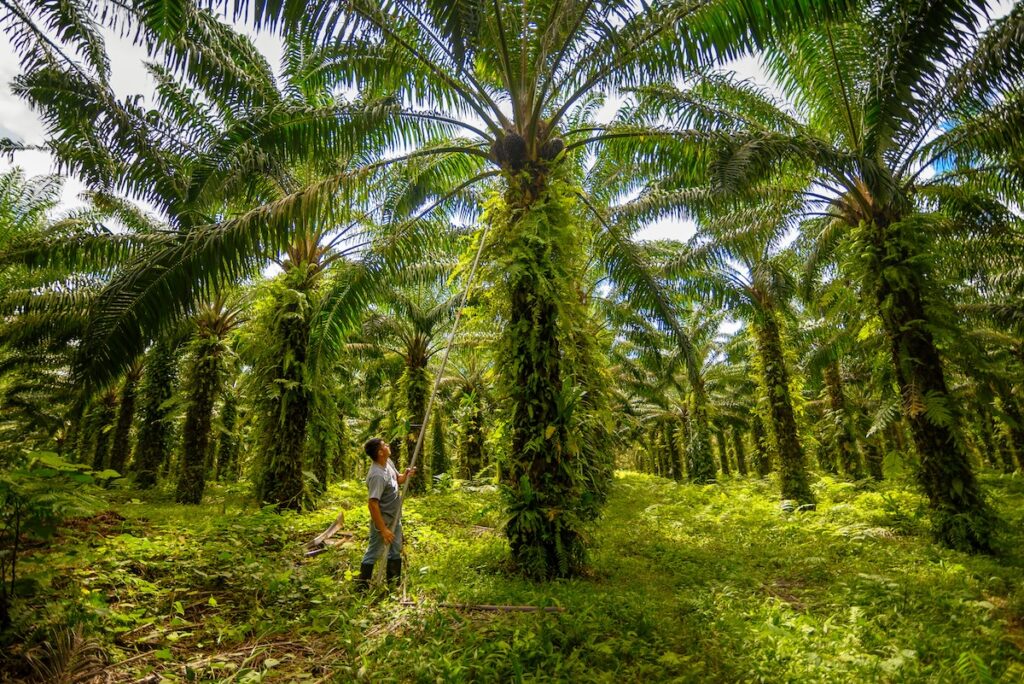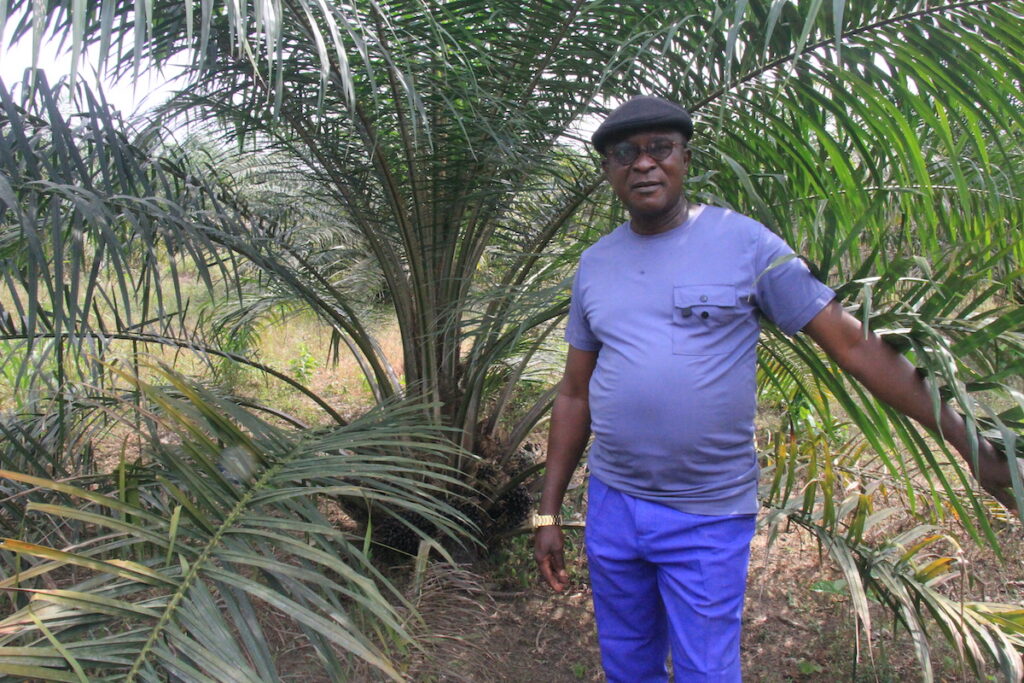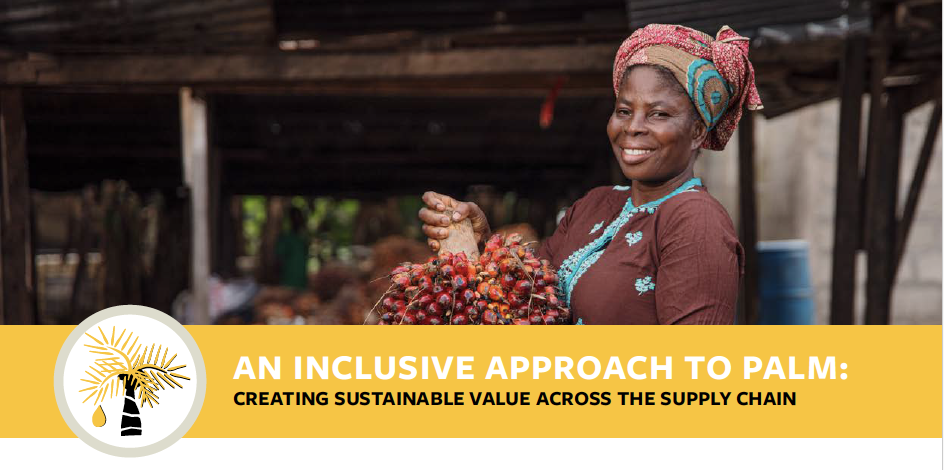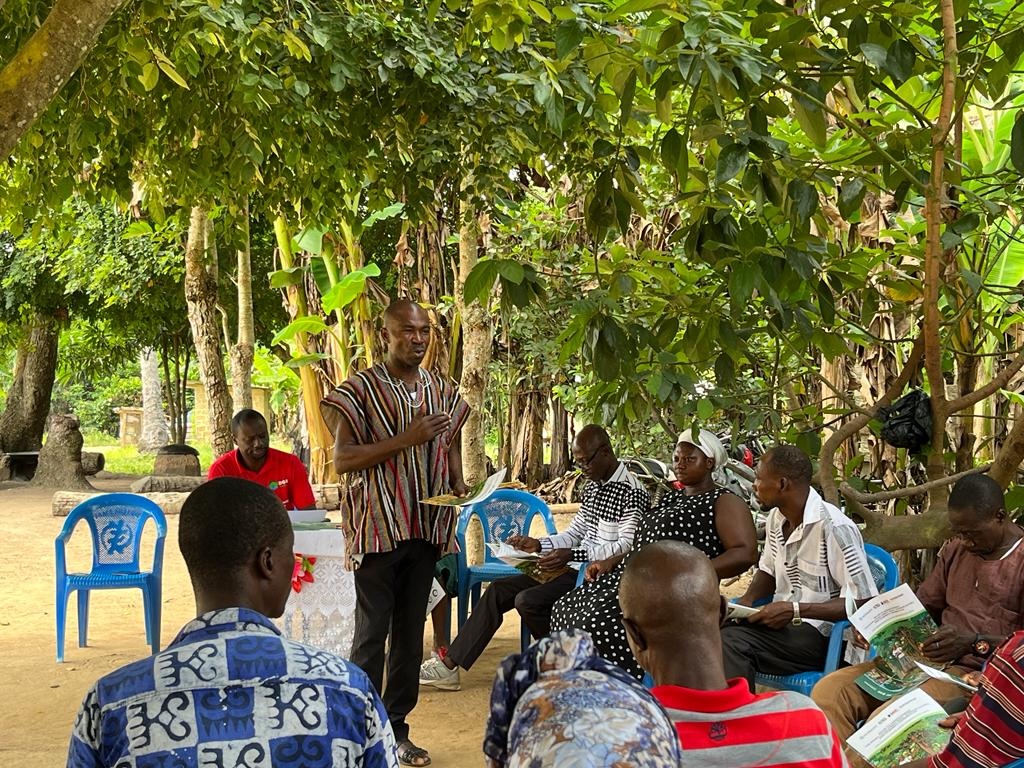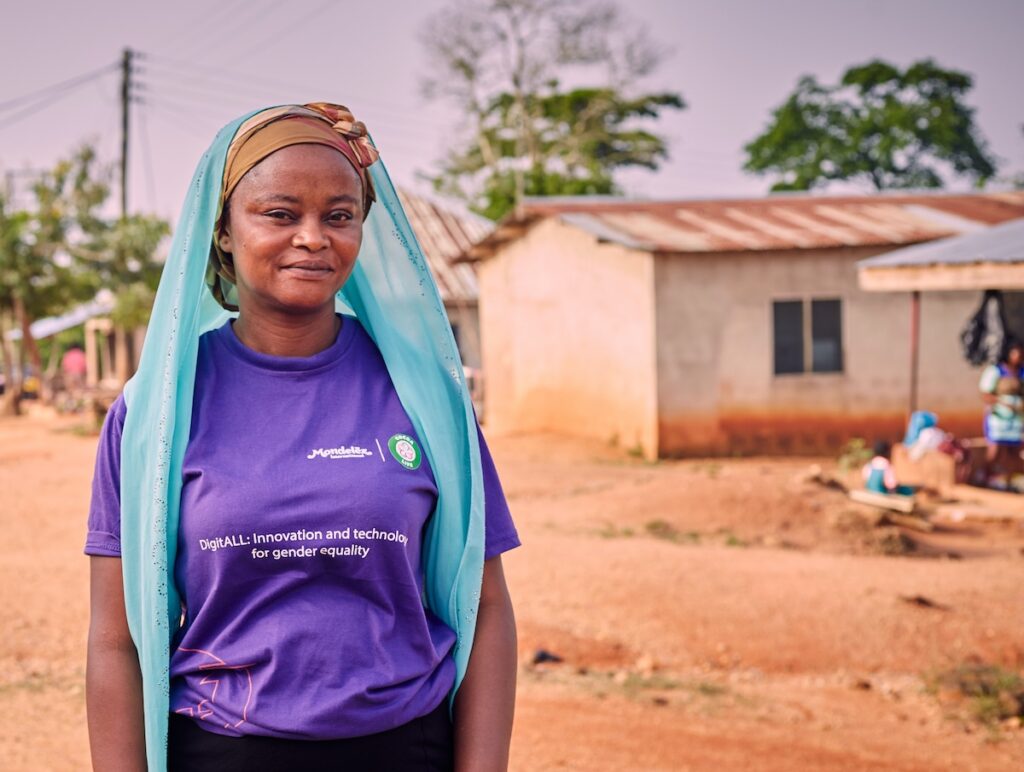Beaming with a smile, 54-year old William Kwabena Marfo of the Kofiase community, near Asante Mampong, stands next to his three-bedroom house that has reached the roofing stage of its construction. With pride, he says, “I am making enough money from my oil palm farm. I could not have built this house without the business.”
Even though William had been planting oil palm since 2004, he lacked knowledge about sustainable oil palm farming.
“I planted just about any oil palm variety. I did not care about weeding and certainly missed basic cultural maintenance practices,” he says.
In 2018, Solidaridad supported William and 26 others in his community, under the Sustainable West Africa Oil Palm Programme, to aspire for RSPO certification by adhering to some sustainability principles on his farm, with the prospect to enhance productivity and income.
In Ghana, the programme is funded by the Embassy of the Kingdom of the Netherlands and the Swiss government through its State Secretariat for Economic Affairs, SECO.
“Solidaridad taught me to remove the fresh fruit bunches with sickle instead of cutlass. I learned how to practice circle weeding, introduce cover crops, arrange palm fronds in a way that conserves soil nutrients as well as the correct way to apply weedicides and fertilizer,” he says.
Kwabena also learned to avoid the use of children, pregnant women and nursing mothers in his farm as labourers. Instead, he hires skilled and able labourers. He says this has contributed to productivity increases on his farm.
Three years ago, I could only harvest about 500 kg of fresh fruit bunches from my seven-and-half acre farm fortnightly. But, now, after applying climate-smart and sustainable practices, I harvest about 3,000 kg every two to three weeks and sell them to the Juaben Oil Mills Limited. This rakes in at least 1,800 cedis (approx. USD 240) every two weeks.
William Kwabena Marfo, Oil Palm Farmer
Kwabena, who is the head of a family of 10, reinvests part of the revenue in his oil palm business, the housing project and supports himself and his family with the rest.
“Now, I do not struggle at all to pay the fees of my six children who are still in school. I take care of my medical bills and that of my family with ease,” he says.
Under the access to finance and enterprise development component of the programme, Solidaridad introduced farmers to Village Savings and Loan Associations (VSLA) to be able to mobilize enough capital to invest in their oil palm and non-oil palm activities to diversify their income sources.
In 2019, the Kofiase community started with two VSLA groups, each constituted of 30 farmers. With a weekly contribution of 20 cedis (approx. USD 2.60), the groups have been able to aggregate enough capital to give out as loans to the members and get repaid within three months.
“I took a loan of 400 cedis (approx. USD 53) from my VSLA group to buy oil palm seeds. With it, I have been able to raise an additional 420 seedlings, which have since been replanted on a new eight-acre farm. This brings my oil palm farm size to 15.5 acres,” says Kwabena.
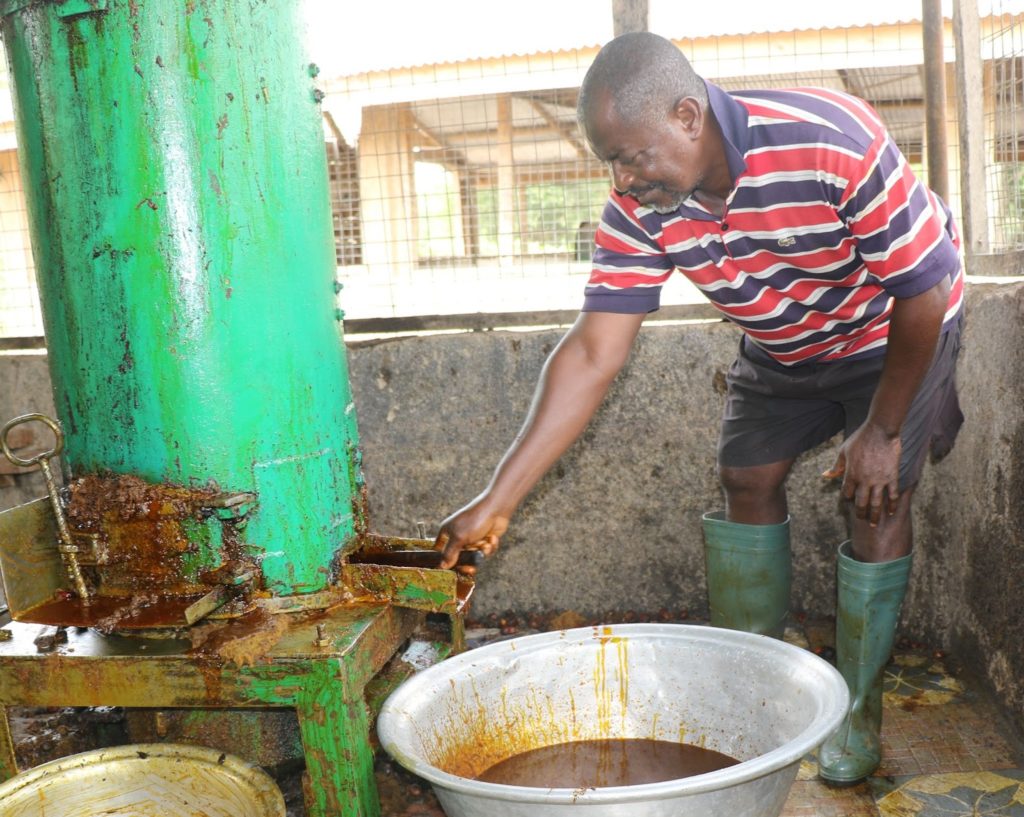
Improving oil palm milling practices in Ghana
Oil Palm farmer Paul Toku-Dum participated in the Sustainable West Africa Palm Oil Programme (SWAPP), which supported farmers with training in best management practices. With this, Paul has seen significant improvements in his farm’s productivity.
Through the instrumentality of the initial groups, other members of the community have also enrolled in six additional VSLA groups, bringing the total membership to 240, constituting eight groups.
“The rising interest in our VSLA groups stems from the ease with which members can access loans at a low-interest rate compared to what commercial banks offer. We have not had anyone defaulting yet and we do not anticipate that to happen because we know how to retrieve such monies within our community,” says Kwabena.
Most recipients of the VSLA loans invest the money in their farms while a few others trade in agrochemicals and other farm inputs with it.
Kwabena is one of the thousands of farmers who have seen a significant change in their lives with the implementation of the Sustainable West Africa Palm Oil programme in his community.
The second phase of the programme started in 2018 with the objective of contributing to the transformation of the oil palm sector in West Africa, increasing the incomes of smallholder farmers and processors, creating jobs and generating economic growth.

